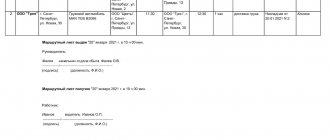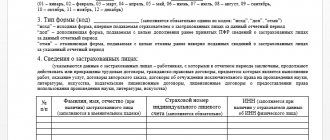The concept of a collective agreement is established by Art. 40 Labor Code of the Russian Federation. This is a written agreement between employees and the employer, which defines working and rest conditions, a system of payment and indexation of earnings, the procedure for paying benefits and compensation, and many other issues. It can be for the entire organization or for each branch and structural unit. The absence of a collective agreement is not a violation, since it is not a mandatory normative act.
What it is
A collective agreement (CA) is an official document necessary to regulate labor and other relations between the employer and employees of the organization. The concept of CD is established by law in Art. 40 Labor Code of the Russian Federation.
Like any other document, a collective agreement should not worsen the employee’s position established by state regulations. That is, the rights and obligations of the employee established by the document should not be lower than those guaranteed by the state.
The contract of agreement can be concluded at the enterprise as a whole or in its individual branches. In the first case, the document has legal force for an LLC or individual entrepreneur in general, and in the second - only for a specific division, that is, employees of other departments or branches are not required to comply with the provisions of the agreement.
Also, a company representative office located in another country can develop its own version of the agreement.
Parties to the agreement:
- employees of the enterprise represented by representatives. This may be a trade union organization or a selected individual;
- employer: individual entrepreneur, head of the enterprise or his authorized representative. For example, a lawyer or deputy director.
Most employers and full-time employees are wondering whether a collective bargaining agreement is mandatory or not in 2021. According to Russian law, such an agreement is not necessary when concluding an employment agreement.
Such a document is drawn up at the initiative of the employer or by an employee of the company. The initiative must be expressed in writing. And the other party is obliged to begin negotiations within a week after notification.
According to the law, the employer is required to sign the contract if the initiator of the procedure was employees of the enterprise. In case of refusal, the employer will bear administrative liability in the form of a fine in the amount of 3-5 thousand rubles.
Violations also include:
- avoidance or refusal to negotiate;
- ignoring deadlines;
- refusal to provide the required information.
For such violations, the fine will be from 1 to 3 thousand rubles.
If neither party has taken the initiative to conclude a collective agreement, then there is no need for it. The law does not provide sanctions for the absence of a document.
Deadlines
The administration at each enterprise decides independently whether a collective labor agreement is mandatory or not in their production conditions. Despite the fact that companies do not have strict requirements regarding the conclusion of this agreement, if the document is signed, then its term should not exceed 3 years (Article 43 of the Labor Code). If mutually desired, the contract can be extended.
If the enterprise changes its name, the collective agreement does not terminate. But if the form of ownership changes, the contract is valid for only 3 months from the date of registration of such change. In cases where an enterprise is reorganized, regardless of how: in the form of a merger, division or accession, the agreement is valid throughout the entire reorganization process.
In both cases, concluding a new agreement requires the initiative of one of the parties.
The agreement must come into force 3 months after the start of negotiations between the parties.
When needed
Many employers think that a collective agreement creates some restrictions for them and, in turn, expands the range of rights of employees. However, at the legislative level, both parties receive some advantages.
The collective agreement is concluded for:
- consolidating and stabilizing the overall system for managing relations between employees and the employer;
- introduction of certain rules and regulations;
- strengthening the internal and material motivation of the employee necessary to perform current work tasks;
- enterprise expense planning;
- providing measures of social and material assistance to employees in appropriate situations.
So there are benefits for both employees and enterprises. Therefore, the employer’s obligation to enter into such an agreement at the request of regular staff should not be perceived negatively.
Violations
Alas, checks of the texts of collective agreements indicate that many contain unacceptable conditions that directly worsen the situation of workers. Most often, we are talking about the fact that the employer prescribes a clause regarding the involvement of employees in after-hours work, without complying with the conditions provided for by the Labor Code.
There are also requirements regarding compulsory labor on subsidiary plots. This responsibility is assigned to each employee. Moreover, he must carry out such work in his free time from performing his main job duties.
Some employers are expanding the scope of disciplinary liability. For example, fines are introduced.
It should be recalled that such conditions directly contradict current labor legislation and are considered invalid.
Compilation rules
The structure and content of the CD have a uniform form and are established by the legislation of the Russian Federation. In addition to the main points, the document must be adapted to the specific activities of specific structures. Whether it is concluding an agreement in private enterprises or in budgetary organizations .
The conditions specified in the contract must not contradict the norms of legislative acts or worsen the situation of personnel.
At the discretion of the parties, additional clauses not established by law may be included in the contract of agreement. Such issues are discussed during negotiations, where the employer’s proxies and representatives of the company’s employees should be present.
The following provisions may be included in a collective agreement:
- form of remuneration and bonus system;
- possible compensations, benefits and allowances;
- procedure for salary increases;
- system of hiring and firing personnel;
- options for professional retraining or training;
- the procedure for issuing vacations, as well as options for rest and breaks during the working day;
- working conditions provided by the employer;
- occupational health and safety;
- the opportunity to study at a university without interrupting work;
- the possibility of providing sanatorium and resort vouchers for employees and their families;
- questions about catering in the company;
- appointment of a person responsible for compliance with the provisions of the agreement;
- liability of the parties for possible violations of the provisions of the agreement;
- the procedure for making edits and changes to the document;
- additional points.
A sample agreement can be downloaded from this link.
After drawing up the document, it must be approved in the appropriate manner.
Salary
This paragraph should include not only the amount of wages for positions, but also the following:
- system, forms of payments;
- how the amount of payment will be regulated depending on rising prices and inflation;
- what allowances are provided;
- How is payment calculated on non-working days and holidays?
Issues regarding the duration of vacations should be covered. It is necessary to highlight preferential categories of positions.
How to approve
The procedure for approving a design documentation is a rather complex and lengthy process:
- Identify employer and employee representatives. The employer can be represented by an individual entrepreneur or the director of an enterprise, as well as any authorized person. A trade union can represent workers. If this is not the case, then representatives are selected by secret ballot. The negotiation period cannot take more than 3 months. For this period, all participants are released from work while maintaining their average earnings. Also, participants in the process cannot be subject to disciplinary action or dismissal. If you wish to hire an expert, the cost of his services is paid by the initiator.
- Present the project. The draft agreement is presented by the party initiating the negotiations. All points must be voiced at the meeting. However, conditions may differ from labor legislation only in the direction of improvement.
- Notify about the start of negotiations. The initiator must notify the other party of the need to begin negotiations, as well as set a date and time. The recipient of the notification may make adjustments to the start date of the process by agreement.
- To negotiate. Negotiations officially begin from the moment the second party responds to the initiator’s notification. Avoiding negotiations will result in a fine. The maximum time for starting the procedure is 7 days after receiving the notification.
- Form a single representative office. This is only necessary if there are two or more trade unions operating on the territory of the enterprise. The representation must include at least one member from each trade union.
- Condemn the project. Labor legislation does not regulate the number or content of contract clauses. If disagreements arise, specialists may be involved in the process. Each party has the right to make its own adjustments to the document. The final content of the document must be agreed upon point by point.
- Approve the project. The project is approved after its presentation at a general meeting of all employees of the enterprise. The final decision is made by a majority vote.
- Drawing up and signing a protocol of disagreements. If during the negotiations the parties still have disagreements, they should be recorded on a special form for further consideration. If there are no disagreements, then the negotiations are over.
- Registration of CD. The collective agreement must be registered with the labor authority within 7 days after official signing. This is necessary for legal verification of the document.
The maximum validity period of the CD is 3 years. After the expiration of the term, it is accepted again with the possibility of making changes.
Thus, a collective agreement is not a prerequisite for the functioning of enterprises with hired employees. Such a document is formed on the basis of agreement of the parties and cannot worsen the current situation of employees.
Register or not
There is another question that arises in the decision-making process whether a collective agreement is mandatory. It is whether the document needs to be registered. The legislation states that registration is also not mandatory, as is the conclusion of a collective agreement.
The fact that a local document comes into force does not depend on whether it was registered with the labor committee. In fact, registration is of a notification nature.
The labor department under the self-government body only evaluates the compliance of the collective agreement with the requirements of labor legislation.
Important points
A representative (or several) of the company’s employees is the person who has the right to express the initiative. After this, you can begin to develop a collective agreement. For this purpose, negotiations are scheduled in a special format. A proposal is prepared, which is then sent to the manager in writing. The document undergoes internal registration. The company manager has seven calendar days to express readiness for negotiations or refuse them. He sends a response to the employees, in which he necessarily indicates who will represent the company and what powers this person will have.
Next, about three months, but no longer, the employees of the company and the representative of the organization agree on the various terms of the collective agreement. In the event that some controversial aspects cause conflicts and it is not possible to find methods for resolving them, after three months they sign the CD, indicating in it only those points on which it was possible to reach consensus.
As for the controversial parts, a protocol of disagreements is formed based on them, taking into account which versions each party adheres to. In the event that future negotiations still do not allow achieving a specific result, you can resort to a collective labor dispute. This possibility is provided for in the current laws of our country, in the Labor Code, in the first part of article number 398. To resolve the dispute, a conciliation commission is assembled, to which mediators are invited. In some cases, it is possible to resort to labor arbitration. It should be remembered that both parties must take part in conciliation procedures. Evasion is unacceptable by law.
Main stages of registration
The collective agreement is formed in several stages:
- collective bargaining;
- eliminating disagreements;
- signing of documents;
- registration of collective agreement.
How does collective bargaining work? If the enterprise was registered less than 3 months ago from the date of registration, then during this period a meeting to discuss the collective agreement should take place.
If the enterprise has been operating for a long time, then a meeting on collective bargaining issues can be held no earlier than one quarter before the completion date of the existing contract.
According to Article 36 of the Labor Code of the Russian Federation, one party-participant must notify the second party of the desire to negotiate; in its turn, the second party-respondent must accept the offer.
It also matters which of the participants put forward the proposal to discuss the collective agreement - the employer or its employees.
If this proposal came from the latter persons, then the PPO must be notified at the same time, after which an EPO must be formed no later than five days from the date of filing the petition.
If there is a need to seek the services of experts, then payment for these services is carried out at the expense of the person who submitted the invitation. Unless otherwise provided in the administrative documentation.
Negotiations must be carried out through a specially formed commission, which is formed from the same workers who take part in the collective agreement.
During the negotiation process, breaks are allowed to make a reasoned decision, search for a compromise solution in controversial issues, etc.
Each host party must be notified of all changes included in the collective agreement, etc.
At the end of the negotiations, everyone must sign a document that obliges them to keep everything agreed upon secret (non-disclosure of trade secrets).
The emergence of disagreements during the negotiation process is quite normal. The settlement of these points is described in Chap. 61 Labor Code of the Russian Federation.
If everything is agreed upon and the decisions in the content of the clauses of the collective agreement are mutually approved by the parties, then a package of documents is formed and signed by both sides.
The package of documents that makes up the collective agreement must be registered. Registration is carried out with local authorities to keep a record of their situation in case of dispute resolution.
Registration is free. The collective agreement is registered in triplicate; stitched and stamped pages with continuous numbering are required.
Typical filling sample for individual entrepreneurs
Is a collective agreement necessary for an entrepreneur at all? Yes, if this request came from his employees. Even here there are no exceptions to the rules. A collective agreement form is available.
The legislative norms of the Labor Code of the Russian Federation establish the same requirements for the formation of a collective agreement for both enterprises, organizations, and individual entrepreneurs.
A sample collective agreement that is used by individual entrepreneurs can be found on the Internet behind the letter. According to the principle of document formation and the procedure for its consideration, collective agreements from organizations, LLCs, are practically no different from the example for entrepreneurs.










